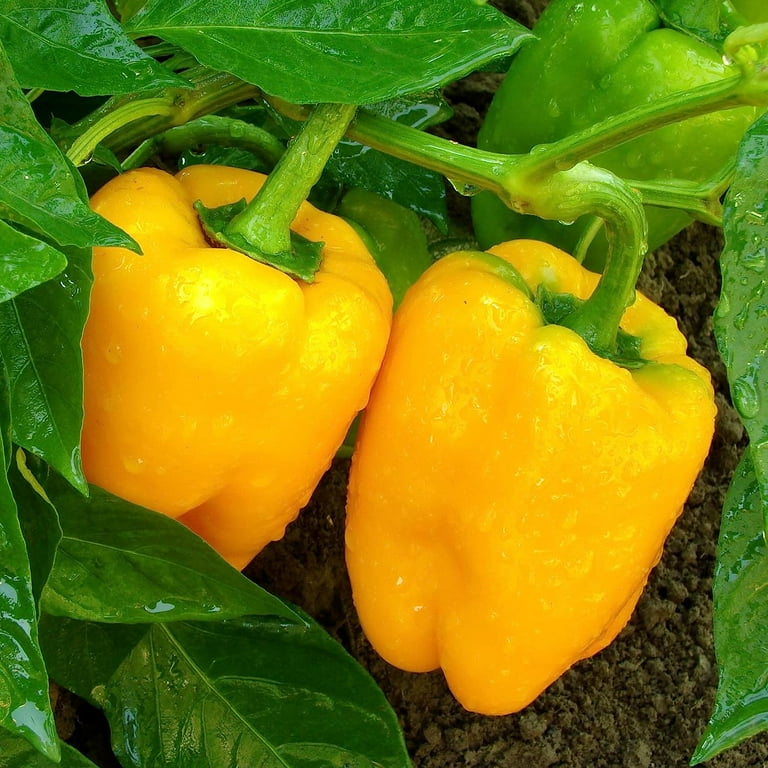Best Fertilizers for Peppers: Attain Superior Results in Your Yard
Best Fertilizers for Peppers: Attain Superior Results in Your Yard
Blog Article
Organic Vs. Synthetic Fertilizers: Which Is Best for Nurturing Healthy Pepper Plants?
In the realm of supporting healthy and balanced pepper plants, the option between organic and synthetic plant foods stands as a pivotal decision with far-ranging effects. While both alternatives purpose to give necessary nutrients to sustain plant growth, the nuances of their influence on the soil, plant health, and the environment spark a debate that mirrors throughout the horticulture area. Recognizing the unique advantages and potential challenges of each plant food kind is vital for pepper cultivators seeking to maximize their returns while preserving a sustainable and eco-conscious strategy.
Advantages of Organic Fertilizers
Organic fertilizers offer a lasting and environmentally-friendly strategy to nourishing pepper plants, offering necessary nutrients without making use of synthetic chemicals. These all-natural plant foods are originated from natural sources such as compost, manure, bone dish, and algae, promoting soil wellness and biodiversity. Unlike artificial fertilizers, organic alternatives release nutrients slowly, making certain a balanced and steady supply for pepper plants to grow.
One substantial advantage of organic plant foods is their capacity to enhance dirt structure and water retention. By boosting dirt health and wellness, natural fertilizers promote helpful microbial task, which helps in nutrient uptake by pepper plants. Additionally, natural plant foods lower the threat of chemical run-off, safeguarding water sources from contamination and guarding the setting.
Moreover, natural plant foods add to long-lasting soil fertility by advertising the growth of valuable dirt organisms. These organisms help damage down organic matter, launching nutrients in a form that is conveniently available to pepper plants. best fertilizers for peppers. By fostering a healthy and balanced dirt ecological community, organic fertilizers support lasting pepper farming techniques that profit both plants and the atmosphere
Disadvantages of Synthetic Fertilizers
Artificial plant foods, in comparison to their natural counterparts, present numerous negative aspects when made use of to nourish pepper plants, impacting both plant health and environmental sustainability. One major drawback of artificial plant foods is their propensity to seep nutrients from the dirt swiftly. This fast leaching can cause nutrition inequalities in the dirt, triggering plants to deal with toxicities or deficiencies. Additionally, synthetic fertilizers can harm useful soil organisms, such as earthworms and useful germs, interrupting the soil community's balance.
Furthermore, the overuse of synthetic plant foods can add to water contamination. Excess fertilizers not taken in by plants can get rid of into water bodies, leading to eutrophication, where algae flowers deplete oxygen levels in the water, harming water life. Moreover, synthetic fertilizers are normally stemmed from non-renewable resources, such as fossil gas, adding to carbon exhausts and environmental degradation throughout their production.
Nutrient Absorption Contrast
When contrasting artificial and natural fertilizers in terms of nutrient absorption, organic fertilizers have the advantage of supplying an extra well balanced and slow-release source of nutrients. Organic fertilizers include a selection of macro and trace elements that are not only helpful for the plants yet also promote healthy and balanced dirt microbial activity, which helps in nutrient uptake.
In addition, organic fertilizers boost dirt framework and water retention capacity, permitting pepper plants to accessibility nutrients much more effectively. This better soil quality assists in origin development, allowing better nutrient absorption. Synthetic plant foods, although initially enhancing plant growth because of their high nutrient focus, may impede lasting nutrient absorption by degrading dirt wellness in time.
Ecological Effect Factors To Consider

On the various other hand, artificial plant foods, although typically even more concentrated and instantly available to plants, can have harmful effects on the environment if not applied properly (best fertilizers for peppers). Their production requires high power inputs, causing greenhouse gas emissions and contributing to environment modification. Furthermore, the runoff of excess artificial plant foods can infect water resources, causing eutrophication and harming marine communities.
Ideal Fertilizer Practices for Peppers
When feeding pepper plants, optimizing nutrient uptake and decreasing environmental effect are vital considerations. To attain this, it is vital to follow ideal plant food practices customized to the specific requirements of pepper plants. One critical practice is to execute a soil examination before applying any type of plant foods. This examination can establish the pH degree of the dirt and recognize any kind of nutrient deficiencies, guiding you in choosing one of the most ideal plant food solution.
One more crucial technique is to feed pepper plants at the correct time. Commonly, peppers profit from obtaining plant food at growing and after that once more when they begin to flower. Over-fertilizing can result in nutrition discrepancies and hurt the plants, so it is essential to adhere to recommended application prices.
Additionally, picking a well balanced plant food with an NPK proportion that fits pepper plants' demands is essential. Organic fertilizers, such as compost or manure, can be excellent options as they release nutrients slowly and improve dirt framework in time. Nevertheless, synthetic fertilizers can offer a fast nutrient increase when needed. Eventually, combining artificial and organic fertilizers judiciously can aid support healthy pepper plants while minimizing ecological effect.
Verdict

Organic plant foods offer a lasting and environmentally-friendly technique to nourishing pepper plants, offering essential nutrients without the usage of synthetic chemicals. Unlike artificial plant foods, organic choices launch nutrients slowly, making sure a steady and balanced supply for pepper plants to thrive.
Synthetic plant foods, in contrast to their organic equivalents, pose different disadvantages when utilized to nurture pepper plants, influencing top article both plant health and ecological sustainability. When contrasting natural and synthetic fertilizers in terms of nutrient absorption, organic plant foods have the benefit of giving a more balanced and slow-release source of nutrients.Additionally, natural plant foods enhance soil framework and water retention ability, allowing pepper this content plants to gain access to nutrients more successfully.
Report this page